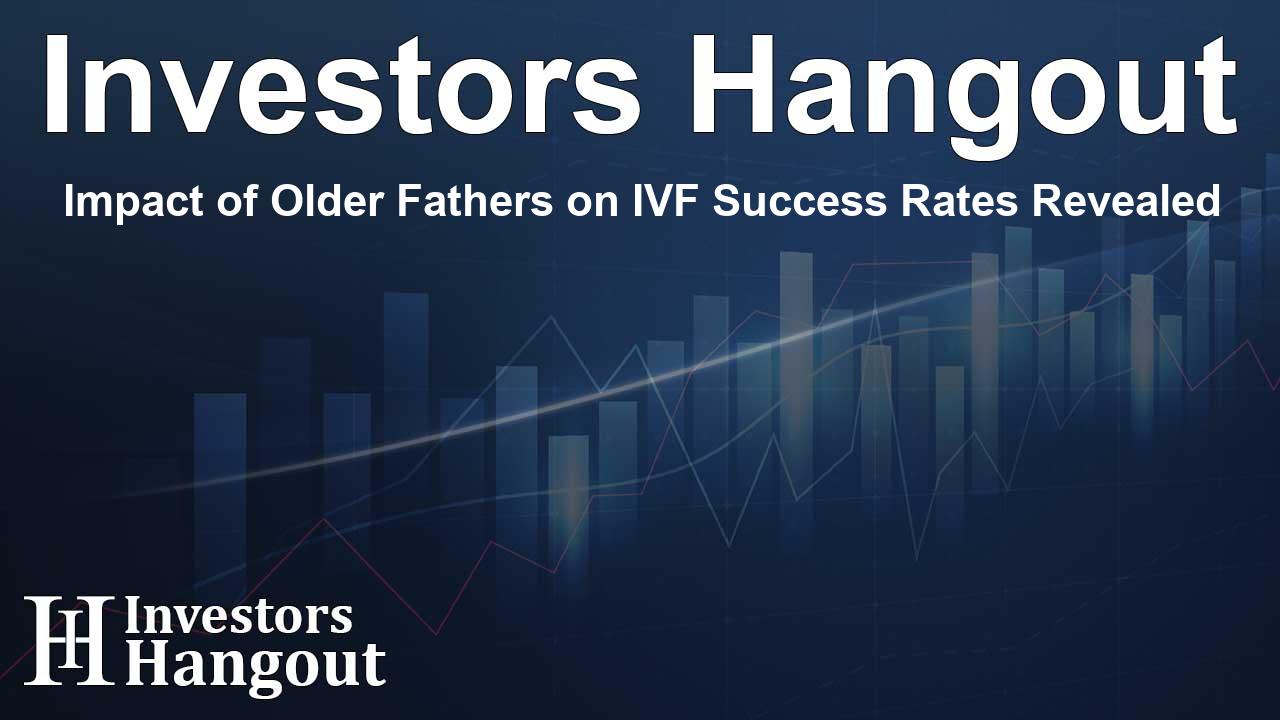Impact of Older Fathers on IVF Success Rates Revealed

Impact of Older Paternal Age on IVF Outcomes
A recent international study has shed light on the significant effects of older paternal age, particularly in IVF cycles involving donor eggs. With findings presented at a major meeting, it became clear that couples where the male partner is over the age of 45 face notably higher risks of miscarriage and lower rates of live births, prompting a reevaluation of current assumptions in reproductive medicine.
Study Overview and Key Findings
The study meticulously analyzed a substantial dataset of 1,712 first oocyte donation cycles conducted across various IVF centers. By focusing exclusively on young donor eggs, researchers were able to isolate the impact of paternal age, revealing unexpected outcomes that challenge prevalent beliefs in fertility treatments.
Participants were categorized into two distinct groups: those aged 45 and younger and those older than 45. Despite similar rates of fertilization and embryo development, the results diverged significantly when it came to live birth and miscarriage rates, highlighting a critical area of concern for couples seeking assisted reproductive technology (ART).
Clinical Implications of the Findings
Miscarriage rates among older fathers rose dramatically to 23.8%, eclipsing the 16.3% rate observed in younger counterparts. Additionally, live births were recorded at 35.1% for older fathers, contrasted with 41% for those aged 45 or younger. These statistics underscore the need for increased awareness among fertility specialists and prospective parents regarding the implications of paternal age.
Expert Insights on Paternal Age
Dr. Maria Cristina Guglielmo, a key researcher in the study, stressed the traditional focus on maternal age in reproductive health, noting the emerging evidence that factors related to the father's age are equally crucial. This study convincingly illustrates that even the highest quality embryos derived from young donors do not negate the risks associated with advanced paternal age.
Guglielmo further pointed out the potential long-term effects on the health of children conceived through these methods. There is an increasing body of research connecting older paternal age to a higher risk of neurodevelopmental disorders in children, making these findings even more pressing.
Future Research Directions
Looking ahead, plans are in motion to delve deeper into how paternal age influences the health trajectory of offspring. By minimizing maternal variables, researchers aim to gain a clearer understanding of the implications of older fatherhood in ART, providing valuable insights for future families.
The abstract of this pivotal study is set to be published in the esteemed journal, Human Reproduction, marking an important contribution to the field of reproductive medicine.
Frequently Asked Questions
What was the main finding of the study regarding older fathers?
The study found that older paternal age is linked to higher miscarriage rates and lower live birth rates in IVF cycles using donor eggs.
How did the researchers conduct the study?
They analyzed data from 1,712 first oocyte donation cycles carried out at multiple IVF centers, focusing on the impact of male age while using young donor eggs.
What were the miscarriage rates for older fathers compared to younger ones?
Miscarriage rates for older fathers (over 45) were 23.8%, compared to 16.3% for those aged 45 or younger.
What implications do these findings have for couples considering IVF?
Couples should be aware that paternal age plays a significant role in the success of IVF and consider this factor when making reproductive choices.
Will future research focus on other aspects of paternal age?
Yes, upcoming research aims to explore the long-term health outcomes of children conceived by older fathers, particularly regarding neurodevelopmental disorders.
About The Author
Contact Addison Perry privately here. Or send an email with ATTN: Addison Perry as the subject to contact@investorshangout.com.
About Investors Hangout
Investors Hangout is a leading online stock forum for financial discussion and learning, offering a wide range of free tools and resources. It draws in traders of all levels, who exchange market knowledge, investigate trading tactics, and keep an eye on industry developments in real time. Featuring financial articles, stock message boards, quotes, charts, company profiles, and live news updates. Through cooperative learning and a wealth of informational resources, it helps users from novices creating their first portfolios to experts honing their techniques. Join Investors Hangout today: https://investorshangout.com/
The content of this article is based on factual, publicly available information and does not represent legal, financial, or investment advice. Investors Hangout does not offer financial advice, and the author is not a licensed financial advisor. Consult a qualified advisor before making any financial or investment decisions based on this article. This article should not be considered advice to purchase, sell, or hold any securities or other investments. If any of the material provided here is inaccurate, please contact us for corrections.
